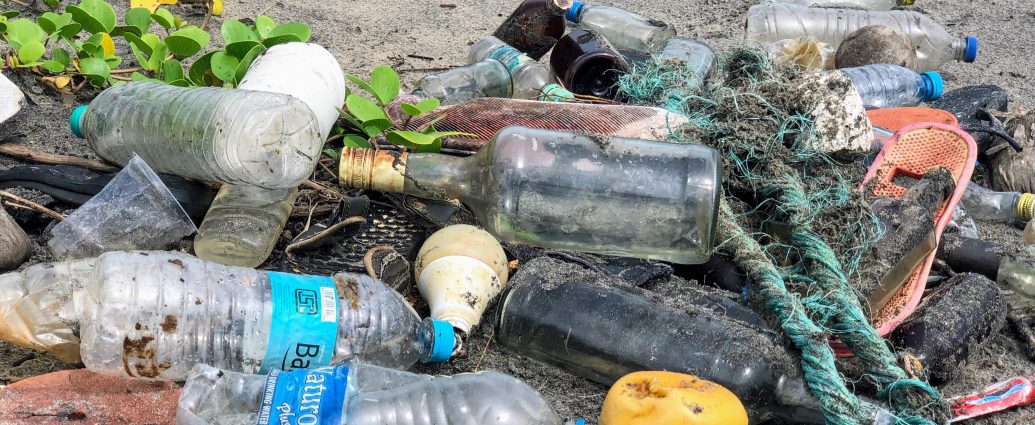It’s the end of Plastic Free July, the campaign to raise awareness of the world’s plastic consumption problem. The campaign boasts that 120 million people took the pledge to stop using plastic for the month of July this year. Raising awareness for this issue is important for the planet and the future health of our oceans. In order to think about how to tackle plastic pollution, we should first think about how this problem began, how plastic has been entangled in our lives and what we can do about it.
Plastic was introduced in 1862 when Alexander Parkes first introduced it to the public. In 1869, Celluloid was first produced, a plastic still used today. In 1908 cellophane was invented, and in 1941 came polystyrene (Styrofoam) was first produced. In the 1960’s and 1970’s plastic became integrated with people’s lives with the introduction of plastic bags at grocery stores and plastic packaging for consumer products. At the same time, the 1961 campaign “Keep America Beautiful” placed an emphasis on consumer responsibility and the importance of not littering.
Since then plastic bags have become a large part of our everyday lives from the packaging our products arrive in to the health care industry where plastic is used in the machines that keep people alive. It is hard to live a day on earth without using plastic in some way. Plastic has helped us progress and grow as a society, but there are negative impacts to this growth that should be dealt with.
Every piece of plastic that has ever been produced on the earth is still here. Plastic can take up to 1,000 years to decompose. When plastic is introduced into the ocean, it breaks down into tiny pieces where it becomes extremely difficult to remove and find. Plastic is found throughout the oceans, rivers, and wilderness in every region on earth including Antarctica.
It is widely accepted that plastic pollution is a serious problem for our oceans and wildlife around the world. Many people try their best to do their part by recycling when they can. Many people take the small step of bringing their own bags to the grocery store. Many people try to limit their impact by implementing changes to their lives. While this is admirable, it accomplishes relatively little in terms of the scale of the problem.
Yes, everyone should be trying to consume less plastic and recycle the plastic we do use. Since we know that this alone will not fix the problem, we also need to be pushing our lawmakers to enact policy that addresses the problem head on by limiting the amount of plastics that can be produced. The only way plastic will cease to be problematic is if we limit what’s produced to begin with.
The problem we are facing today is a direct result of policy that doesn’t address this problem head on. Policy that people’s lives more difficult for consumers has proven not to work. We need policy that doesn’t allow consumers the option of using single-use plastics to begin with. We are being failed by our politicians who will not act to put limits on the plastics that are being produced. China banned all plastic bags in 2008. Since then, they have seen a 66% production of plastic bags being manufactured. Canada has begun their own ban on plastic bags as well, vowing to ban them by 2021.
Placing a ban on single-use plastics is not a pipe-dream, it is achievable and possible. Awareness of the plastic is at an all-time high. This momentum could help us get to a real solution for plastic and a win for the environmental movement. Plastic Free July has done great work to raise awareness about our plastic problem, let’s keep the fight going after this campaign ends.

